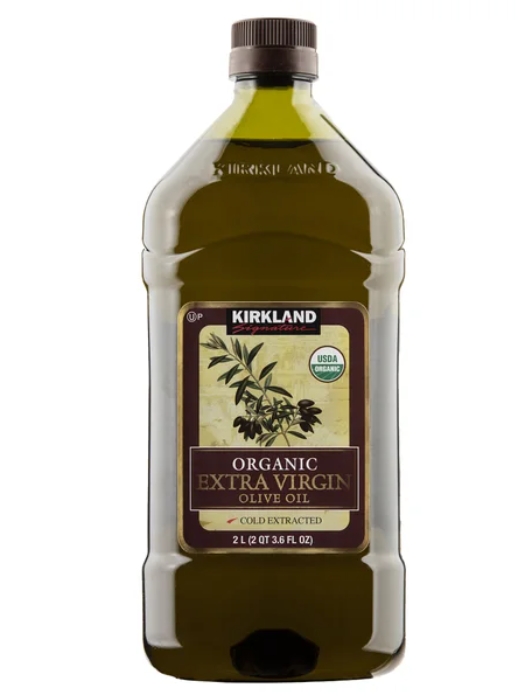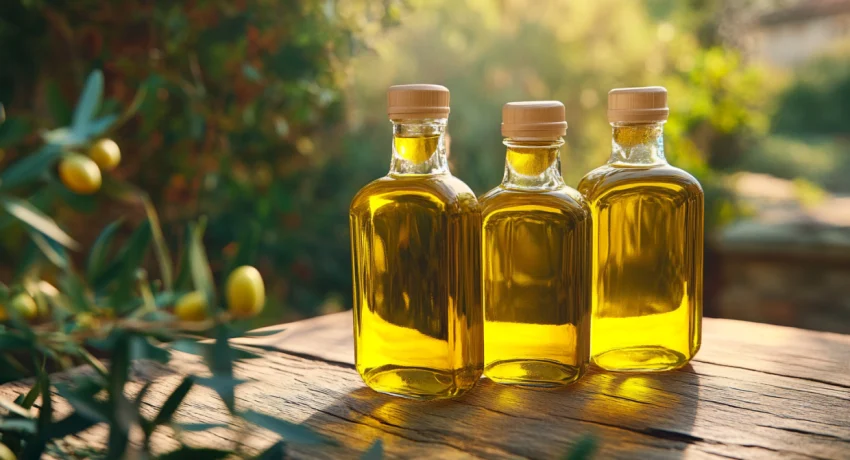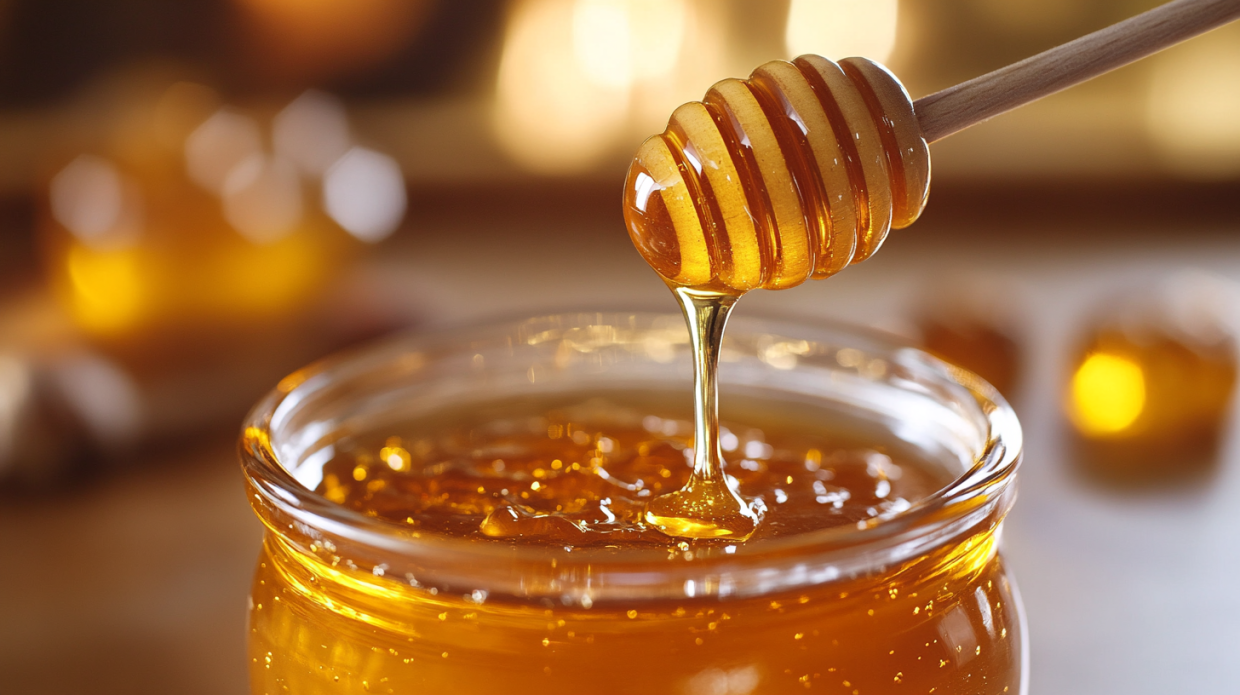
Kirkland Signature, Organic Extra Virgin Olive Oil, 2 L
- Organic Extra Virgin Olive Oil
- 2 Liter Plastic Bottle
- First Cold Pressed
- USDA Organic
- Kosher
Uncovering the Mediterranean Secret in Your Costco Cart
In the sprawling aisles of Costco, where bulk purchases and value reign supreme, there exists a product that has achieved near-mythical status among culinary enthusiasts and budget-conscious shoppers alike. Housed in distinctive green bottles, Kirkland Signature Olive Oil has become a staple in countless American kitchens, yet many who reach for this Mediterranean elixir know surprisingly little about what they’re actually bringing home.
As I stood in my kitchen last week, drizzling the golden-green liquid over a fresh caprese salad, I found myself wondering about its journey from distant olive groves to my dinner table. Who cultivates these olives? Is the “extra virgin” claim legitimate? And how does this warehouse club brand compare to fancy boutique oils costing three times as much?
The truth behind Kirkland Signature Olive Oil is far more fascinating than most consumers realize, representing an extraordinary intersection of ancient tradition, modern agriculture, and global commerce.
Let’s embark on a journey through the olive groves of the Mediterranean to uncover the full story of this kitchen essential, exploring everything from its origins and production methods to its culinary applications and value proposition.
The Mysterious Makers: Who Produces Kirkland Olive Oil?
One of the most frequently asked questions about Kirkland Signature products concerns their manufacturing origins. Unlike many private label brands that obscure their sourcing, Costco has been relatively transparent about its olive oil partnerships.
Kirkland Signature Olive Oil is not produced in Costco-owned facilities but rather through strategic partnerships with established olive oil producers. For their Extra Virgin Olive Oil, Costco collaborates with Borges Mediterranean Group, a respected Spanish food company with over a century of experience in olive oil production. This collaboration ensures that despite the Kirkland branding, the oil itself comes from producers with deep roots in olive cultivation and processing.
The company also works with various Italian producers for certain specialty oils in their lineup. These relationships shift periodically based on harvest quality, availability, and pricing considerations. This approach allows Costco to maintain consistent quality while navigating the notoriously volatile olive oil market, where production can vary dramatically year to year due to weather conditions, pest pressures, and other agricultural variables.
What’s particularly interesting is that many of these producers also bottle oils under their own premium labels, meaning that Kirkland Olive Oil often shares production facilities and even source groves with much more expensive branded options.
Extra Virgin Claims: Marketing Hype or Legitimate Quality?
The olive oil industry has long been plagued by scandal and fraud. Studies have repeatedly found that many oils labeled as “extra virgin” on supermarket shelves fail to meet the technical standards for this premium classification. This reality has created legitimate skepticism among consumers about quality claims, especially from lower-priced options.
So where does Kirkland Signature stand? The evidence suggests their extra virgin olive oil genuinely meets the classification standards. Here’s why:
First, Kirkland’s extra virgin olive oil undergoes testing both by suppliers and by Costco’s own quality assurance programs. These tests examine factors including free fatty acid content, peroxide values, and sensory characteristics—all elements that define true extra virgin quality.
Second, independent testing has generally supported Kirkland’s quality claims. In a widely publicized study from the UC Davis Olive Center, Kirkland Organic Extra Virgin Olive Oil passed all chemical and sensory tests for extra virgin quality, outperforming many more expensive brands.
Third, Costco’s business model actually supports legitimate quality. Their enormous purchasing power allows them to negotiate favorable pricing while still maintaining strict standards, and their rapid inventory turnover means the oil spends less time in storage where quality degradation can occur.
From Tree to Bottle: The Cold-Pressed Question
Traditional olive oil production involves crushing olives into a paste, then pressing that paste to extract the oil—a process that generates heat through friction. However, excessive heat can degrade the oil’s flavor compounds and beneficial nutrients.
Kirkland Signature Extra Virgin Olive Oil is indeed cold-pressed, meaning the temperature during processing never exceeds 80°F (27°C). This preservation of temperature helps maintain the delicate flavor compounds and antioxidants that make quality olive oil so prized.
The cold-pressing process begins with mechanical harvesters or hand-picking (depending on the grove and terrain), followed by cleaning and crushing the olives into a paste. This paste then undergoes malaxation—a mixing process that helps separate oil droplets—before the actual pressing. The resulting oil and water mixture is then separated through centrifugation, yielding the pure olive oil.
For their first cold-pressed offerings, the olives are processed within hours of harvesting to minimize oxidation and fermentation, which can negatively impact quality. This rapid timeline from harvest to pressing is a hallmark of premium oil production and contributes significantly to the final product’s flavor profile.
Mediterranean Origins: Where Do Kirkland’s Olives Grow?
Olive oil, unlike many food products, still maintains strong ties to its geographical origins. Different regions produce oils with distinctive characteristics based on olive varieties, climate, soil conditions, and production methods.
Kirkland Signature offers several olive oil varieties with different sourcing:
Their flagship Extra Virgin Olive Oil is primarily sourced from Spain, Italy, Portugal, and Greece—the traditional powerhouses of olive cultivation. The standard bottle you’ll find in most Costco warehouses typically contains a blend from these countries, allowing Costco to maintain consistency despite seasonal variations in any single region.
The Kirkland Signature Organic Extra Virgin Olive Oil has historically been sourced primarily from Italian olive groves, though the exact regional sourcing may vary from year to year based on harvest quality.
For their California-origin oil, Kirkland partners with producers in the San Joaquin Valley, where Mediterranean-like growing conditions have fostered a burgeoning olive oil industry over recent decades.
This diversified sourcing strategy offers both advantages and disadvantages. The blending approach ensures greater consistency in flavor and availability, but it means the oil lacks the distinctive regional character that some olive oil connoisseurs prize. For most everyday cooking applications, however, this consistency is exactly what many home cooks prefer.
The Price Point: Value That’s Hard to Beat
One of the most compelling aspects of Kirkland Signature Olive Oil is its pricing. At approximately $16.99 for a 2-liter bottle of their Extra Virgin Olive Oil (prices may vary by location and over time), it represents one of the best values in the category.
For perspective, this pricing works out to about 25 cents per ounce, while comparable quality branded oils often sell for 50 cents to $1 per ounce or more. The organic version typically sells for around $21.99 for the same 2-liter size, still representing significant savings over other organic options.
This pricing advantage stems from several factors in Costco’s business model:
- Their enormous purchasing power allows them to negotiate favorable terms with suppliers
- The membership model provides a guaranteed customer base
- Lower marketing costs compared to national brands
- Streamlined distribution through their warehouse system
- A corporate philosophy of maintaining modest profit margins to drive volume
The result is a genuine value proposition that doesn’t necessarily sacrifice quality—a rare combination in the often premium-priced world of culinary oils.
Organic Credentials: When Kirkland Goes Green
For consumers prioritizing organic production methods, Kirkland offers an organic extra virgin olive oil option. This product is certified organic according to USDA standards, meaning the olives are grown without synthetic pesticides or fertilizers, and processing must adhere to organic handling requirements.
The organic certification process involves third-party verification and documentation of farming practices, including:
- Three years of organic management before certification
- Detailed record-keeping of all inputs and practices
- Regular inspections of growing and processing facilities
- Buffer zones between organic groves and conventional agriculture
- Prohibition of genetically modified organisms
The resulting organic oil typically displays a slightly different flavor profile than the conventional version, often with grassier, more herbaceous notes. This difference stems not just from the organic growing methods but also from the specific olive varieties used and their terroir.
While the organic version commands a premium of approximately 30% over the conventional Kirkland oil, it still represents excellent value compared to other organic olive oils on the market, many of which sell for two to three times the price.
Competitive Landscape: How Kirkland Stacks Up
The olive oil market spans from mass-market brands to artisanal producers, with price points ranging from budget to ultra-premium. Within this landscape, Kirkland Signature occupies an interesting position—offering quality that often rivals mid-premium brands at a price point closer to budget options.
In blind taste tests conducted by cooking publications and consumer organizations, Kirkland oils have performed remarkably well. The organic version in particular has frequently outranked oils costing significantly more, demonstrating that price and quality don’t always correlate directly in this category.
What Kirkland oils might lack compared to premium single-estate bottles is extreme distinctiveness. The most expensive oils on the market often showcase highly specific regional characteristics or rare olive varieties, offering flavor profiles that can be intensely peppery, grassy, or fruity. Kirkland oils, by contrast, aim for balanced, crowd-pleasing profiles that work well across various culinary applications.
For everyday cooking and most home applications, this balance is precisely what many consumers prefer. The oils offer enough character to enhance dishes without overwhelming them, and their consistency means home cooks can rely on predictable results.
Pure and Simple: The Ingredients List
Perhaps the most straightforward aspect of Kirkland Signature Olive Oil is its ingredients list: 100% olive oil. The extra virgin varieties contain absolutely nothing beyond oil extracted from olives, with no additives, preservatives, or other oils blended in.
This purity is a significant factor in the product’s popularity among health-conscious consumers. Unlike some cooking oils that undergo extensive chemical processing or refinement, extra virgin olive oil is essentially fresh olive juice, retaining the natural compounds that contribute to its health benefits.
These compounds include:
- Oleocanthal, which has anti-inflammatory properties similar to ibuprofen
- Oleuropein, a powerful antioxidant
- Monounsaturated fatty acids, particularly oleic acid
- Vitamin E and vitamin K
- Various phenolic compounds with potential health benefits
The complete absence of additives or blending with other oils sets Kirkland’s product apart from some lower-priced competitors, who may dilute olive oil with less expensive seed oils—a practice that has been at the center of numerous industry scandals.
Authenticity Assurance: Spotting the Real Deal
With olive oil fraud unfortunately common in the global market, many consumers wonder how to verify they’re getting authentic products. For Kirkland Signature oils, several indicators help confirm authenticity:
The bottles feature a harvest date (not just an expiration date), allowing consumers to assess freshness. Quality olive oil is best consumed within 18-24 months of harvest, and the inclusion of this information demonstrates transparency.
The extra virgin varieties come in dark glass bottles that protect the oil from light exposure, which can degrade quality. This packaging choice reflects proper handling knowledge.
The labels include specific information about sourcing regions rather than vague claims, another indicator of transparency.
Perhaps most importantly, Costco’s direct purchasing relationships with producers and vertical integration of their supply chain significantly reduce the risk of fraud that can occur when oils change hands multiple times between production and retail.
For those seeking additional reassurance, sensory evaluation offers clues to authenticity. True extra virgin olive oil should have a fresh, clean aroma with notes that might include grass, herbs, green apple, or tomato leaf. It should taste fruity initially, with a peppery finish that might produce a slight catch in the throat—a reaction to those healthy phenolic compounds.
Shelf Stability: Maximizing Your Oil’s Lifespan
Despite its many virtues, olive oil is not immortal. As a natural product, it degrades over time, particularly when exposed to heat, light, and oxygen. Understanding proper storage can dramatically extend the useful life of your Kirkland olive oil.
The typical shelf life for unopened Kirkland Extra Virgin Olive Oil is approximately 18-24 months from the harvest date (not the purchase date). Once opened, the oil is best used within 3-6 months for optimal flavor, though it remains safe to consume much longer.
To maximize freshness:
- Store in a cool, dark place away from the stove
- Keep tightly sealed when not in use
- Consider transferring portions to smaller containers as you use the oil, minimizing oxygen exposure in the main bottle
- Never refrigerate olive oil, as this can cause condensation that accelerates degradation
One advantage of Kirkland’s 2-liter bottles is that frequent Costco shoppers are likely to use the product relatively quickly, minimizing storage time. However, for smaller households, the size might be a disadvantage, as the oil may begin to lose peak flavor before it’s fully consumed.
Signs that olive oil is past its prime include a flat aroma, waxy mouthfeel, and absence of the characteristic peppery finish. While old oil isn’t dangerous, it loses many of the qualities that make extra virgin olive oil special.
Culinary Applications: From Stovetop to Salad Bowl
Olive oil’s culinary versatility has contributed significantly to its enduring popularity, and Kirkland’s offerings adapt well to various cooking methods. However, understanding how heat affects different olive oils can help optimize their use.
For cold applications like salad dressings, dips, and finishing drizzles, Kirkland Extra Virgin Olive Oil shines brightest. These unheated uses preserve the oil’s delicate flavor compounds and allow its character to come through clearly. The organic version, with its more pronounced herbaceous notes, is particularly well-suited to these applications.
For medium-heat cooking like sautéing and gentle frying, the extra virgin varieties remain excellent choices. Despite common misconceptions, quality extra virgin olive oil has a smoke point around 375-405°F, making it suitable for most stovetop cooking. The phenolic compounds that give good oil its peppery kick also contribute to its stability during heating.
For high-heat methods approaching 400°F, like certain types of roasting or searing, Kirkland’s regular olive oil (not extra virgin) may be preferable. This more refined product has a slightly higher smoke point and a more neutral flavor that won’t overpower or become bitter in high-heat applications.
Baking with olive oil has gained popularity as cooks discover its ability to create moist, flavorful cakes and breads. Kirkland’s balanced flavor profile works particularly well in Mediterranean-inspired baked goods, contributing rich mouthfeel without dominating other ingredients.
The Taste Test: Flavor Profile Analysis
Describing olive oil flavors shares much in common with wine tasting, with experts identifying complex notes and characteristics. For the average consumer, however, the key question is simpler: does it taste good?
Kirkland Signature Extra Virgin Olive Oil offers a balanced flavor profile with moderate fruitiness, a pleasant bitterness, and a peppery finish that indicates the presence of healthy polyphenols. It’s neither aggressively grassy nor excessively mild—a middle-ground approach that works well across various cuisines.
The organic version typically presents more pronounced green notes, often described as grassy or herbaceous, with a somewhat stronger peppery finish. This profile makes it particularly well-suited to dishes where the oil plays a starring role, such as dipping for bread or simple vegetable preparations.
Taste can be subjective, but professional tasters evaluate olive oils on three key characteristics:
- Fruitiness: The positive olive flavors that can range from ripe and buttery to green and grassy
- Bitterness: A desirable attribute derived from olives harvested earlier in the season
- Pungency: The peppery sensation that creates a slight catch in the throat
Kirkland oils score respectably across these dimensions, offering enough character to satisfy culinary enthusiasts while remaining approachable for everyday use.
Quality Assurances: Certifications and Standards
For consumers seeking objective verification of quality, certifications provide valuable guidance. Kirkland Signature olive oils carry several important quality markers:
Their extra virgin offerings meet the standards established by the International Olive Council (IOC), which specify chemical parameters including free fatty acid content below 0.8% and peroxide values below 20 mEq O2/kg, along with passing sensory evaluation by trained tasters.
The organic version carries USDA Organic certification, verifying compliance with organic farming and handling requirements.
Some bottles also feature certification from the North American Olive Oil Association (NAOOA), which conducts random testing of oils to verify they meet international standards.
These certifications provide meaningful assurance beyond marketing claims, particularly in a category where mislabeling has been problematic. Costco’s significant market position also means they have strong incentives to maintain quality, as any authenticity issues would pose substantial reputational risk.
Beyond the Kitchen: Olive Oil for Wellness
While culinary applications remain primary, olive oil’s use extends beyond the kitchen. Its moisturizing and antioxidant properties have made it a component in skincare and haircare routines for centuries.
For skin applications, Kirkland Extra Virgin Olive Oil can serve as an effective makeup remover, moisturizer for dry skin, or base for homemade scrubs. Its composition is similar to the skin’s natural oils, allowing effective absorption without clogging pores for most skin types.
As a hair treatment, the oil can address dryness and frizz when used as a pre-shampoo conditioning mask. The fatty acids penetrate the hair shaft, improving elasticity and shine, particularly for damaged or color-treated hair.
While specialized cosmetic-grade oils might be preferable for dedicated beauty applications, the food-grade Kirkland product offers a natural, affordable option for occasional skincare and haircare uses. Its lack of additives makes it particularly suitable for those with sensitive skin who react to conventional products containing synthetic ingredients.
Organic vs. Regular: Understanding the Differences
The Kirkland olive oil lineup includes both conventional and organic options, leading many consumers to wonder about the meaningful differences between them.
Beyond the obvious distinction in growing methods—organic olives are cultivated without synthetic pesticides or fertilizers—several other factors distinguish these products:
The organic version typically uses different olive varieties than the conventional oil, often favoring those that grow well under organic management conditions. These variety differences contribute to the distinctive flavor profile of the organic oil.
Processing facilities for organic oils must maintain strict separation from conventional products and use cleaning protocols that avoid prohibited substances, adding to production costs.
Environmental impact differs significantly, with organic production generally supporting greater biodiversity and soil health, though yields may be lower.
While both products meet extra virgin standards, the organic version typically contains higher levels of certain beneficial compounds, likely due to both growing methods and olive variety selection.
The price premium for the organic version—approximately 30%—reflects these differences in production costs and typically delivers a more distinctive flavor experience along with the assurance of organic certification.
The Final Verdict: Is Kirkland Olive Oil Worth It?
After exploring every aspect of Kirkland Signature Olive Oil—from production and sourcing to flavor and value—the evidence points to a product that genuinely delivers on its promises.
For everyday cooking, salads, and most culinary applications, Kirkland oils offer quality that rivals many more expensive brands at a fraction of the price. The commitment to authentic extra virgin standards, cold-pressing methods, and transparent sourcing creates a product that satisfies both culinary and ethical considerations for most consumers.
The organic option provides added value for those prioritizing organic agriculture, with a more distinctive flavor profile that justifies its modest price premium over the conventional version.
Where Kirkland oils may fall short is in providing the extreme distinctiveness or regional specificity that olive oil connoisseurs sometimes seek. Those looking for oils with intense personality or specific regional character might still prefer small-production, single-estate bottles for special applications, while keeping Kirkland on hand for everyday use.
The remarkable achievement of Kirkland Signature Olive Oil lies not in being the absolute finest oil available regardless of price, but in delivering genuine quality at a price point that makes good olive oil accessible for everyday use—democratizing what was once considered a luxury ingredient.
In a market segment plagued by questions of authenticity and value, Kirkland’s offerings stand as a compelling option for consumers seeking the culinary and health benefits of olive oil without premium pricing. As Mediterranean diet principles gain ever more scientific support, having affordable access to authentic olive oil becomes increasingly significant—making Kirkland’s contribution to the category particularly meaningful for health-conscious consumers.




